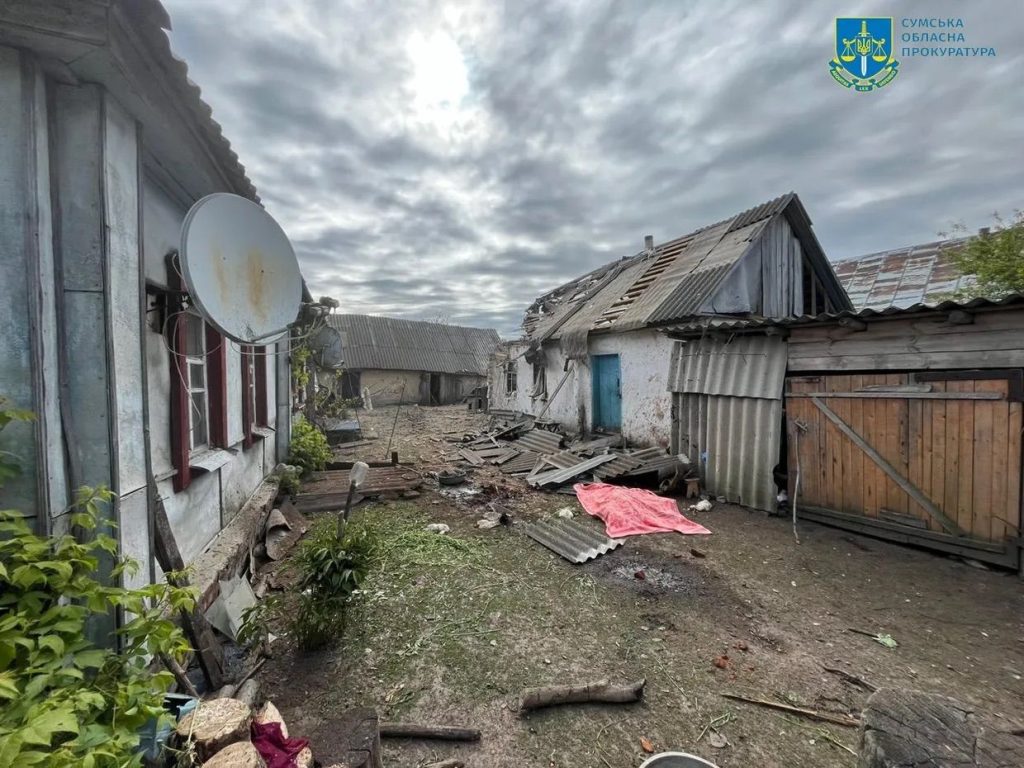Russia conducted an attack on the Esman community in Ukraine’s northeastern Sumy Oblast, using guided bombs that resulted in the deaths of two civilians. This attack was part of a series of 22 separate attacks in eight communities in Sumy Oblast throughout the day. The region shares a border with Russia’s Bryansk, Kursk, and Belgorod oblasts. The attacks included the use of grenade launchers, drones, and guided bombs in communities such as Mykolaiv, Khotin, Yunakivka, Myropillia, Richkivka, Bilopillia, Krasnopillia, and Nova Sloboda. Russia has been targeting this region more intensively since Ukraine launched a cross-border incursion into neighboring Kursk Oblast in early August.
President Volodymyr Zelensky mentioned that Ukraine’s incursion into Kursk Oblast has been instrumental in preventing the occupation of Sumy Oblast and its regional center, the city of Sumy. This incursion has also led to an increase in anger and support for the war in Russia’s border regions. In response to Ukraine’s actions, residents in the city of Kursk have been volunteering at local drop-off points, distributing clothes and bedding to those affected by the conflict. This support for the war effort reflects the growing tensions and repercussions of Ukraine’s offensive into Russian territory.
The ongoing conflict between Russia and Ukraine has escalated with Russia intensifying its strikes against Sumy Oblast, particularly after Ukraine’s incursion into Kursk Oblast. The attacks have included the use of various weapons such as grenade launchers, drones, and guided bombs, resulting in civilian casualties. This heightened violence has raised concerns about the potential for further escalation and the impact on the local communities in the region. The border regions between Russia and Ukraine have become a focal point of the conflict, with residents on both sides feeling the effects of the ongoing hostilities.
Russia’s aggression towards Ukraine, including the recent attacks on communities in Sumy Oblast, has deepened the animosity between the two countries. The conflict has also strained relations between Russia and its border regions, as residents in areas like Kursk are increasingly getting involved in supporting the war effort. The situation remains volatile and unpredictable, with both countries facing the challenges of conflict escalation and potential further casualties. The international community has been closely monitoring the situation and calling for a peaceful resolution to the conflict to prevent further loss of life and damage to the region.
The attacks on communities in Sumy Oblast highlight the devastating impact of the ongoing conflict between Russia and Ukraine on civilians. The use of guided bombs and other weapons in these attacks has resulted in fatalities and injuries among the local population. The escalation of violence in the region has created a humanitarian crisis, with residents in affected areas in need of assistance and support. The international community has a responsibility to address the humanitarian needs of those impacted by the conflict and work towards finding a peaceful solution to end the violence and restore stability to the region.
The conflict between Russia and Ukraine has raised concerns about the wider implications for regional security and stability. The ongoing hostilities in border regions like Sumy Oblast and Kursk Oblast have the potential to further escalate and draw in neighboring countries, leading to a broader regional conflict. The international community must work towards de-escalating tensions and finding a diplomatic solution to the conflict to prevent further violence and instability in the region. Both Russia and Ukraine need to engage in dialogue and negotiation to address the root causes of the conflict and work towards a lasting peace settlement that respects the rights and sovereignty of all parties involved.















